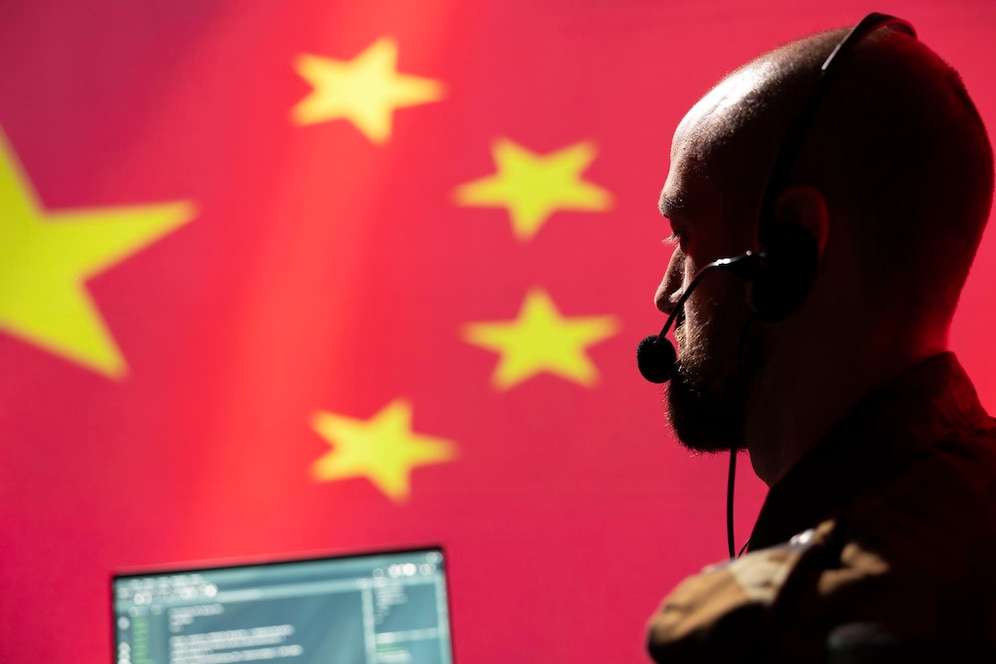The relationship between technology giants and global military powers has become a significant focal point in recent years. This article delves into how Chinese military scientists, specifically researchers from the People’s Liberation Army (PLA), are reportedly leveraging Meta’s artificial intelligence (AI) technology to develop military applications, stirring debates over international AI ethics and security policies.
Table of Contents
- How China Utilizes Meta’s Open-Source AI for Military Purposes
- What is LLaMA and Why is It Significant?
- China’s AI Development Strategy in the Military Sector
- Challenges and Risks of Open-Source AI in Military Use
- How Meta’s Open-Source Policy Benefits and Challenges Global AI Development
- Implications for International Security and Technology Governance
- Ethical Concerns and the Global AI Race
- Meta’s Position on the Unauthorized Use of Its Technology
- Frequently Asked Questions
How China Utilizes Meta’s Open-Source AI for Military Purposes
In recent reports, Chinese military researchers associated with the People’s Liberation Army have been found using Meta’s LLaMA, an AI model developed by Meta, to create and optimize various military technologies. Although Meta explicitly states that its AI products should not be used for military or espionage purposes, the open-source nature of LLaMA allows users worldwide to access and modify the technology for their own needs. This section explores how the PLA uses this AI model to advance its own military technology.
What is LLaMA and Why is It Significant?
LLaMA, short for Large Language Model Meta AI, is an advanced open-source AI model developed by Meta, intended to assist in natural language processing tasks. Unlike many proprietary AI systems, LLaMA is freely available, providing a foundation for various applications in fields ranging from healthcare to research. However, this freedom means that LLaMA can also be adapted for military uses. Understanding the capabilities and potential of LLaMA helps shed light on why it appeals to both civilian and military researchers worldwide.
China’s AI Development Strategy in the Military Sector
China’s commitment to advancing its military technology is well-documented, with AI playing a central role. The PLA has incorporated AI to enhance decision-making, optimize combat strategies, and improve cybersecurity. By leveraging LLaMA, Chinese scientists have reportedly created ChatBIT, an AI chatbot designed for military dialogue and question-answering tasks, and have used AI algorithms to develop interference strategies in electronic warfare. This strategic approach reflects China’s ongoing ambition to become a leader in AI-driven military capabilities.
Challenges and Risks of Open-Source AI in Military Use
The open-source nature of Meta’s LLaMA model presents a paradox. While open-source AI can democratize technology, it also introduces risks, particularly when utilized by state actors with military ambitions. This section discusses the challenges Meta faces in monitoring the use of its open-source software and the ethical and practical implications of freely available AI tools in a world where AI applications increasingly shape global power dynamics.
How Meta’s Open-Source Policy Benefits and Challenges Global AI Development
Meta’s approach to AI development has focused on openness and accessibility. According to CEO Mark Zuckerberg, making AI tools freely available empowers developers globally and prevents technological monopolization. However, this philosophy is not without consequences. This section delves into the dual-edged nature of Meta’s open-source policy and how it contributes to both innovation and potential misuse, particularly by military actors.
Implications for International Security and Technology Governance
With Chinese researchers adapting LLaMA for military applications, questions arise over how international security bodies should respond to open-source technology’s influence on global power structures. Meta’s position, which favors open AI distribution, adds complexity to technology governance, as countries compete for AI supremacy. This section explores the potential repercussions for international security and the regulatory actions that could address these challenges.
Ethical Concerns and the Global AI Race
AI has opened new frontiers for military technology, leading to an international race to harness these capabilities. Yet, ethical concerns accompany this rapid advancement, especially regarding AI’s militarization and potential for unintended consequences. As China continues to invest heavily in military AI, the global community faces questions about where to draw ethical boundaries, particularly regarding the collaboration—or lack thereof—between technology companies and governmental military programs.
Meta’s Position on the Unauthorized Use of Its Technology
Meta has responded to reports about the PLA’s use of its technology by reiterating that its AI tools are not meant for military use. However, the company has limited options for enforcement once users download its open-source AI models. This section covers Meta’s official stance on unauthorized uses and the complexities of enforcing such policies in an open-source ecosystem.
FAQ’s
1. Why is Meta’s LLaMA model open-source?
Meta aims to democratize AI development by allowing global access to LLaMA, hoping to stimulate innovation across various sectors.
2. What are the risks of open-source AI in military applications?
Open-source AI can potentially be repurposed for military or espionage activities by nation-states, leading to ethical and security concerns.
3. How is China using Meta’s AI for military purposes?
Reports suggest that Chinese scientists have used LLaMA to create ChatBIT, a military chatbot, and develop strategies for electronic warfare, despite Meta’s restrictions on military use.
4. What challenges does Meta face with unauthorized uses of its technology?
Due to the open-source nature of LLaMA, Meta has limited control over its use, complicating enforcement of its acceptable use policies.
5. Is the global AI race impacting international security?
Yes, as countries like China and the U.S. invest heavily in AI, concerns arise over the role of AI in military technology, leading to a competitive and sometimes tense environment on the global stage.



